Effects of electrification in the car trade
What effects can be derived from the conversion of vehicles from combustion engines to electric cars for the “workshop business” business model in car dealerships?
In terms of new registrations, the past year saw the largest ever increase in electric and hybrid vehicles on the German market. According to the KBA, three out of ten new registrations in September 2020 were in this vehicle group, compared to just 1 in 10 in the same period last year.
For the sake of completeness, it should be mentioned that the environmental bonuses currently awarded by the government have certainly increased the incentives in this sector, but there are numerous other facts and figures that prove the trend towards change. One is the change in manufacturers’ product ranges. Volkswagen, the industry leader in Germany, expects electric vehicles to account for 25 percent of the market by 2025, while Volvo has not been developing any classic models since 2020.
So the manufacturers’ strategy seems transparent – but what impact will this have on the retailer’s workshop business?
According to the transformation model developed by Panoff Consulting, there are five organizational building blocks to consider, which are briefly and concisely explained below:
Structure
The structure of a classic car dealership will undergo a major conversion. The large number of lifts and repair bays will no longer be needed in the future, as the need for repairs as a whole will be significantly reduced. According to the DAT Report 2018, the proportion of repair and accident work is around 45%, while maintenance work accounts for the lion’s share of around 55%.
This means that more than half of the current business is on the brink of collapse, as electrically powered vehicles no longer require a large proportion of this work. In addition, car dealerships have to deal with the purchase of charging stations, which has so far been associated with high costs. How does the charging infrastructure pay for itself?
Employees
In 10 years’ time, the skills of employees in car dealerships will have to look significantly different than they do today. For the reasons mentioned above, it can be deduced that the classic mechanic and mechatronics technician will no longer be needed in large numbers.
Rather, digital skills will also be needed in the workshop, as the challenges of the vehicle user will migrate to the area of connectivity between vehicle and user. Issues such as software updates via over-the-air technology or app control of the vehicle must be just as much a part of a service employee’s repertoire as knowledge of the new drives and batteries.
Processes
In times of digitalization, workshop processes have been undergoing radical change for some time now. The switch to electrically powered vehicles is just a drop in the ocean. In concrete terms, it means that in future there may no longer be any need to differentiate between service advisors and workshop employees in the workshop process in front of the customer.
According to our forecast, the above-mentioned questions will no longer necessarily be answered by a worker in overalls, but by a digital-savvy service advisor. This revolutionizes the process for the customer to the extent that an issue is resolved in a much shorter time than with traditional maintenance.
In this context, new revenue concepts must be identified for the dealer (today, so-called “app enrollments”, i.e. activating the connection between the vehicle and smartphone, are free of charge for many manufacturers, for example).
Information technology
Artificial intelligence and vehicle connectivity are central to the strategic shift away from combustion engines towards electric vehicles. Problems in the vehicle are automatically forwarded to the dealer after approval, meaning that the systems at dealerships (and manufacturers) are becoming increasingly important.
Dealers must be prepared to receive customer appointments booked online (via the vehicles). A necessary prerequisite is the standardization of services in the workshop so that appointment slots can be set up and allocated at all.
Furthermore, a standardized customer master database between manufacturer and dealer is required, especially in connection with the introduction of the agency model for e-vehicles, in order to provide the best possible customer service.
Leadership
In order to optimally guide the four organizational building blocks of a successful workshop business through the coming change, a management team is needed that initiates this change proactively and, above all, at an early stage. It is therefore particularly important now to act as a leader and not as a classic manager. The best possible management of the current situation is no longer enough to meet the changing demands of the market.

Lambert Görsdorf
Consultant
More impulses
- 2024
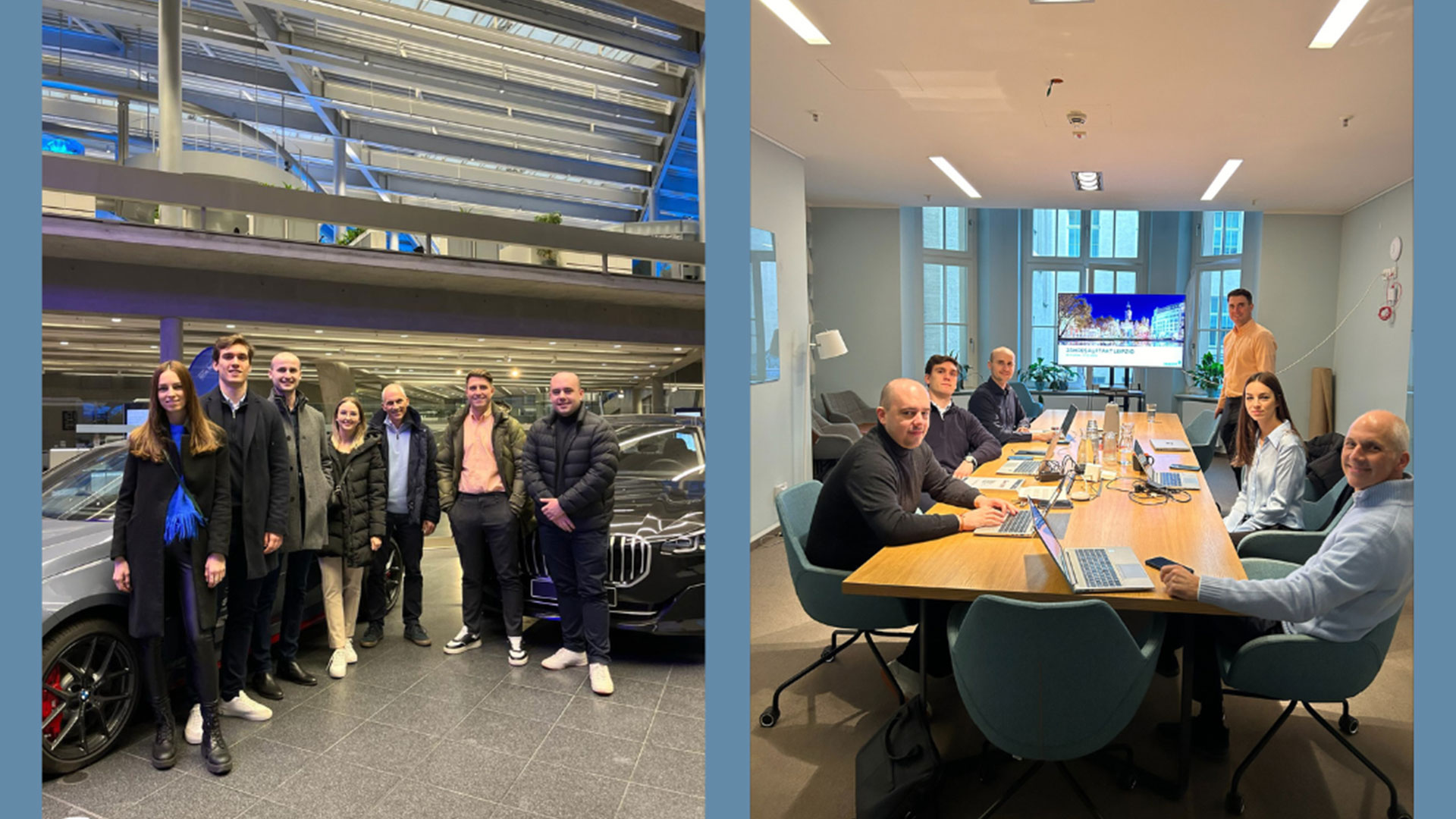
Panoff Automotive Retail Team Gears Up for a Dynamic 2024!
02 Feb - 2024
Last week, our team gathered for our annual kick-off meeting, setting the stage for a...
- 2023
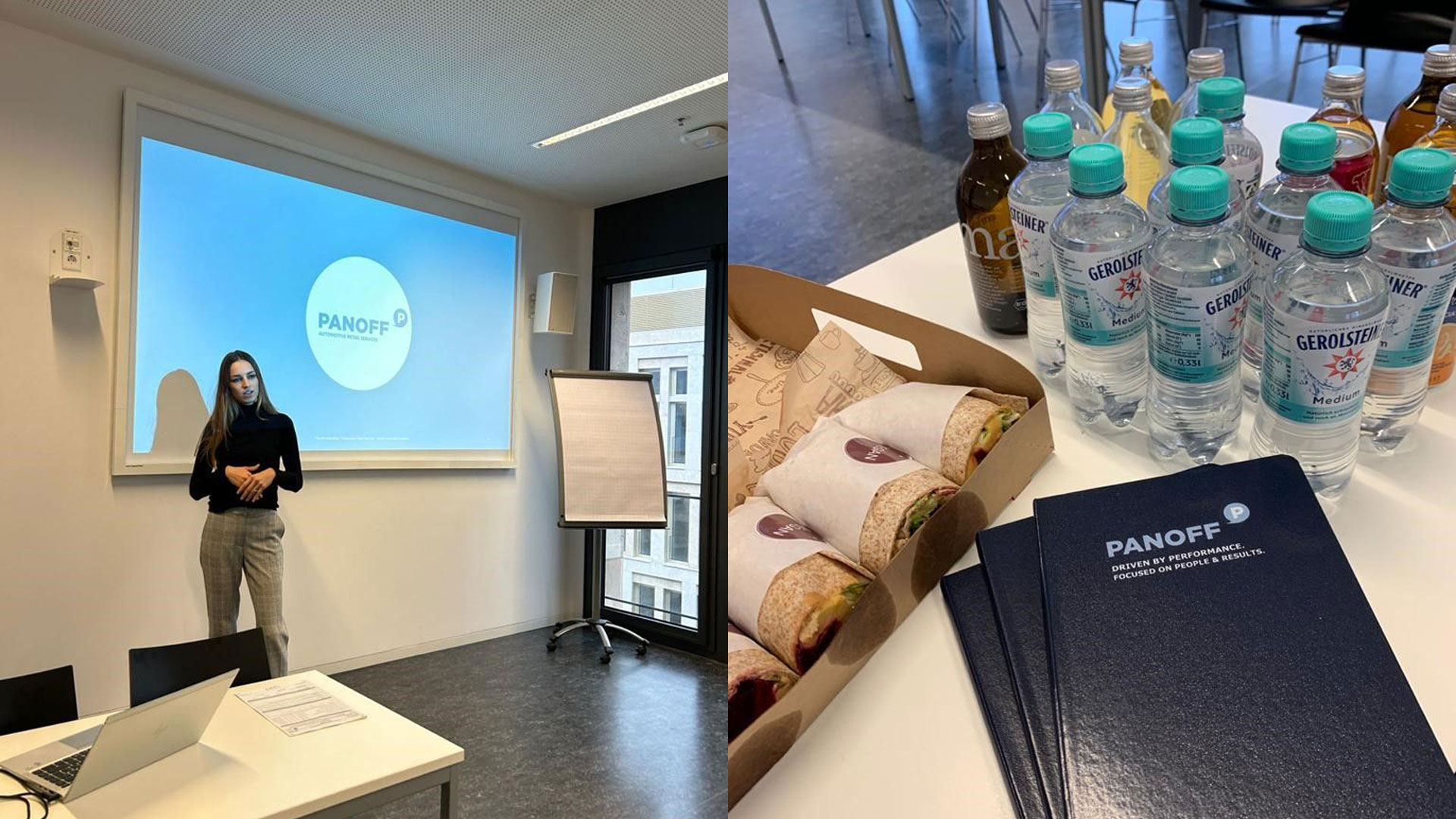
Bridging Academia with Industry at Goethe University Frankfurt!
06 Dec - 2023
Last week, our colleagues Kristin H. and Marco Ueberall had the opportunity to visit the...
- 2023
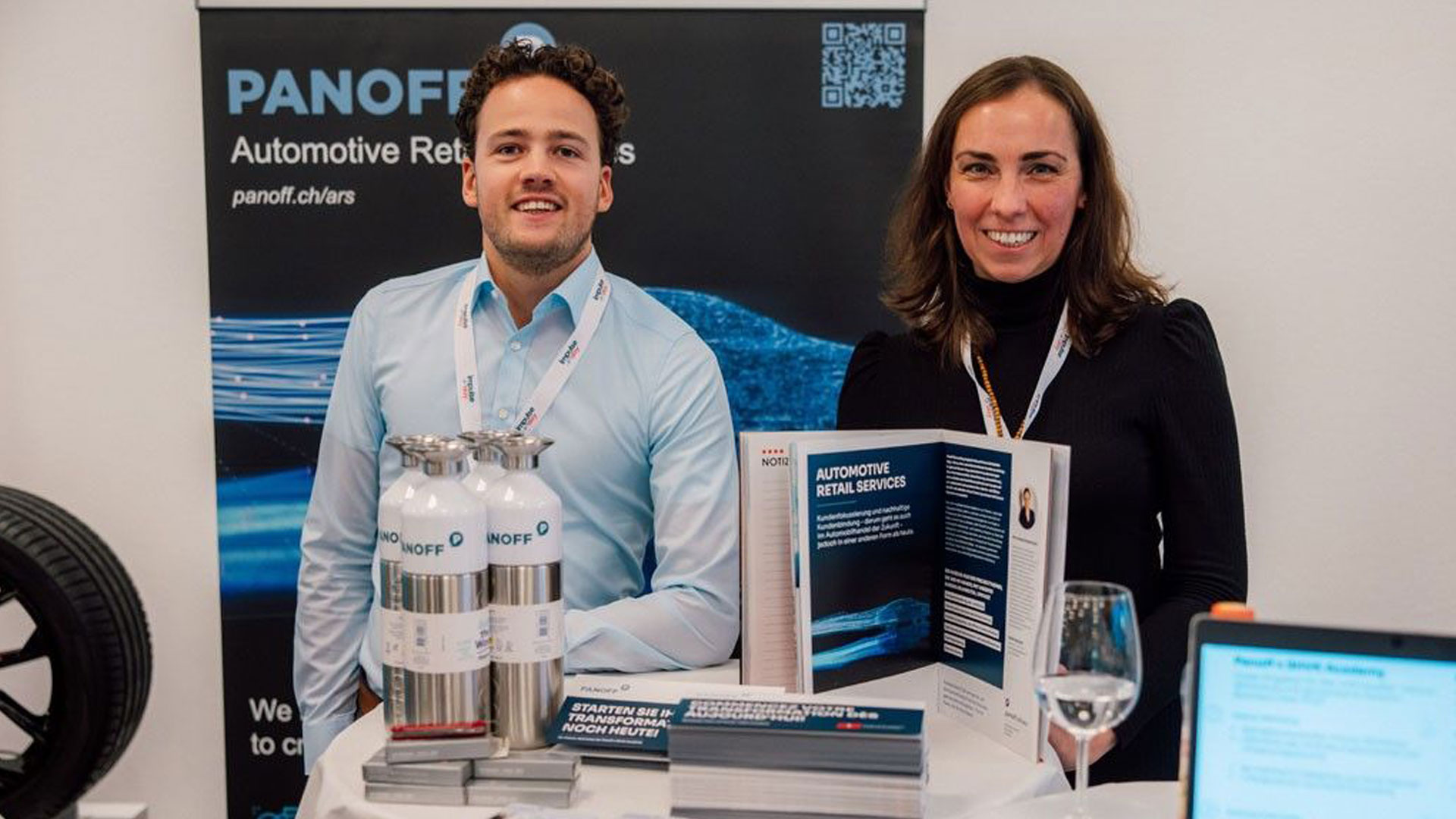
Our colleagues Heike Spengler and Berend Hoitink proudly launched the Panoff x SHVK Academy during the second Impulse Day.
29 Nov - 2023
Our colleagues Heike Spengler and Berend Hoitink proudly launched the Panoff x SHVK Academy during...
- 2023
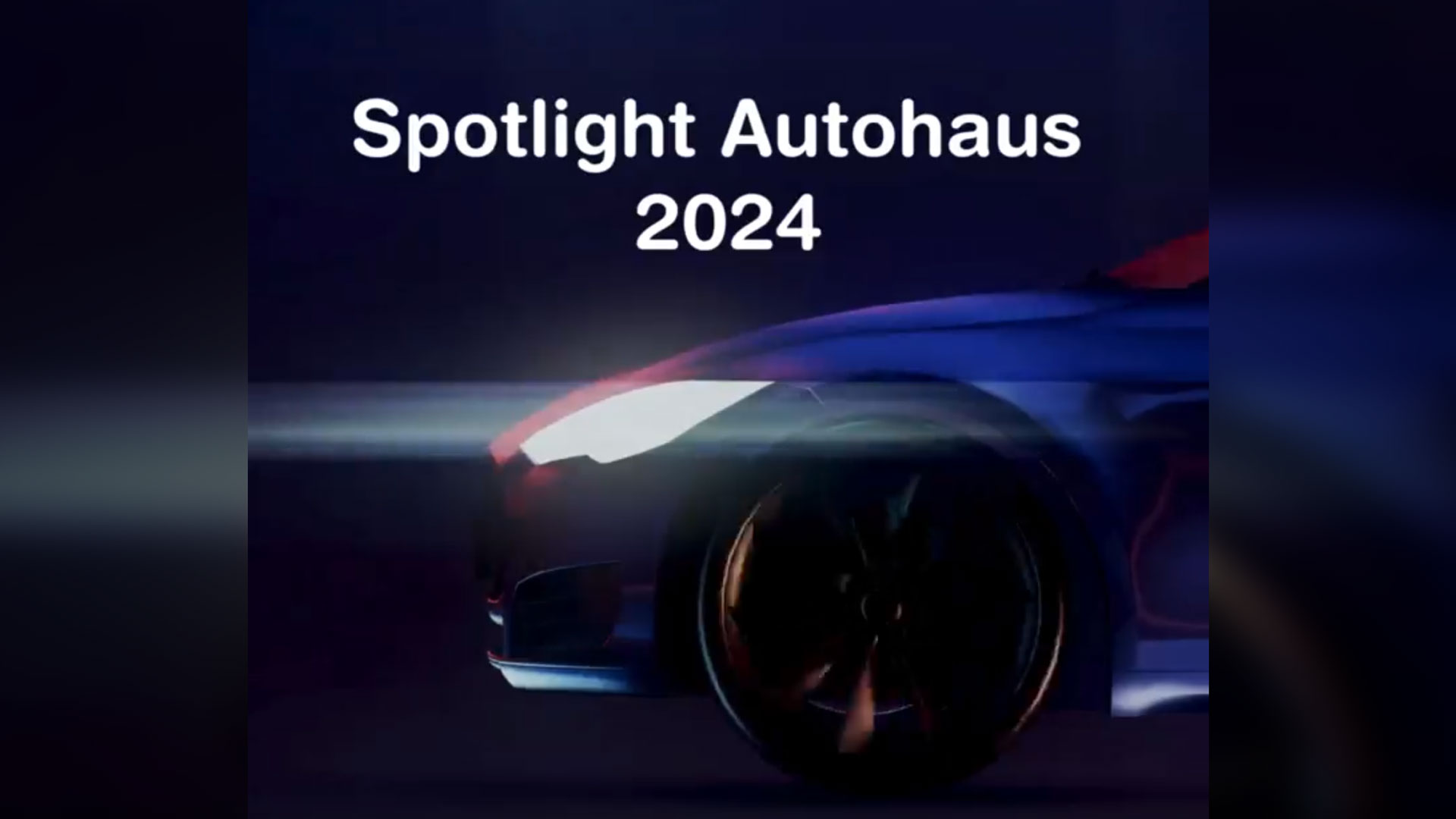
- 2023
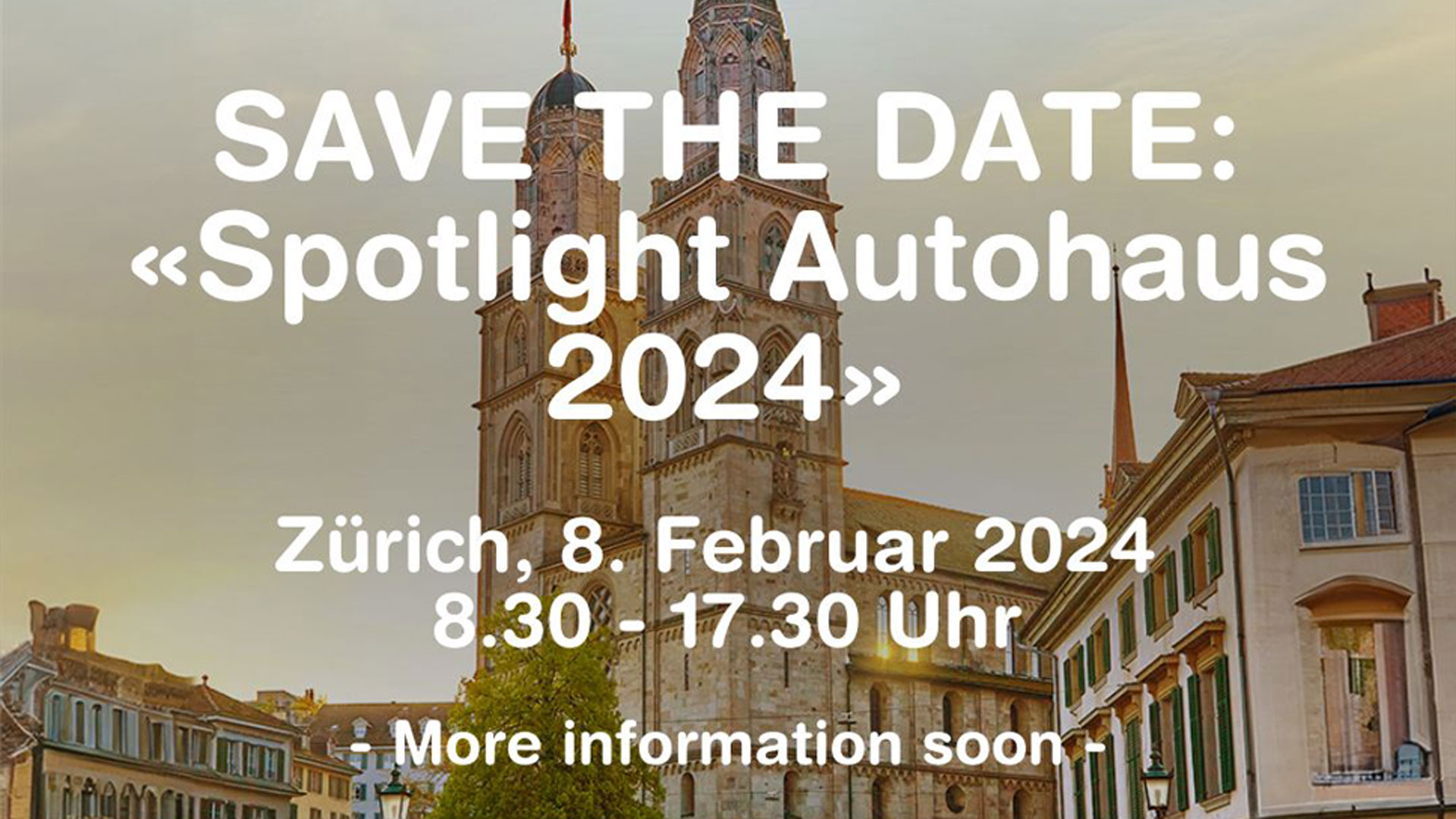
Save the Date: “Spotlight Autohaus 2024”
20 Nov - 2023
Relevante Themen aus der Automobilbranche: Eine einzigartige Kombination aus Fachinputs und direkter anschliessender Anwendung in...
- 2023
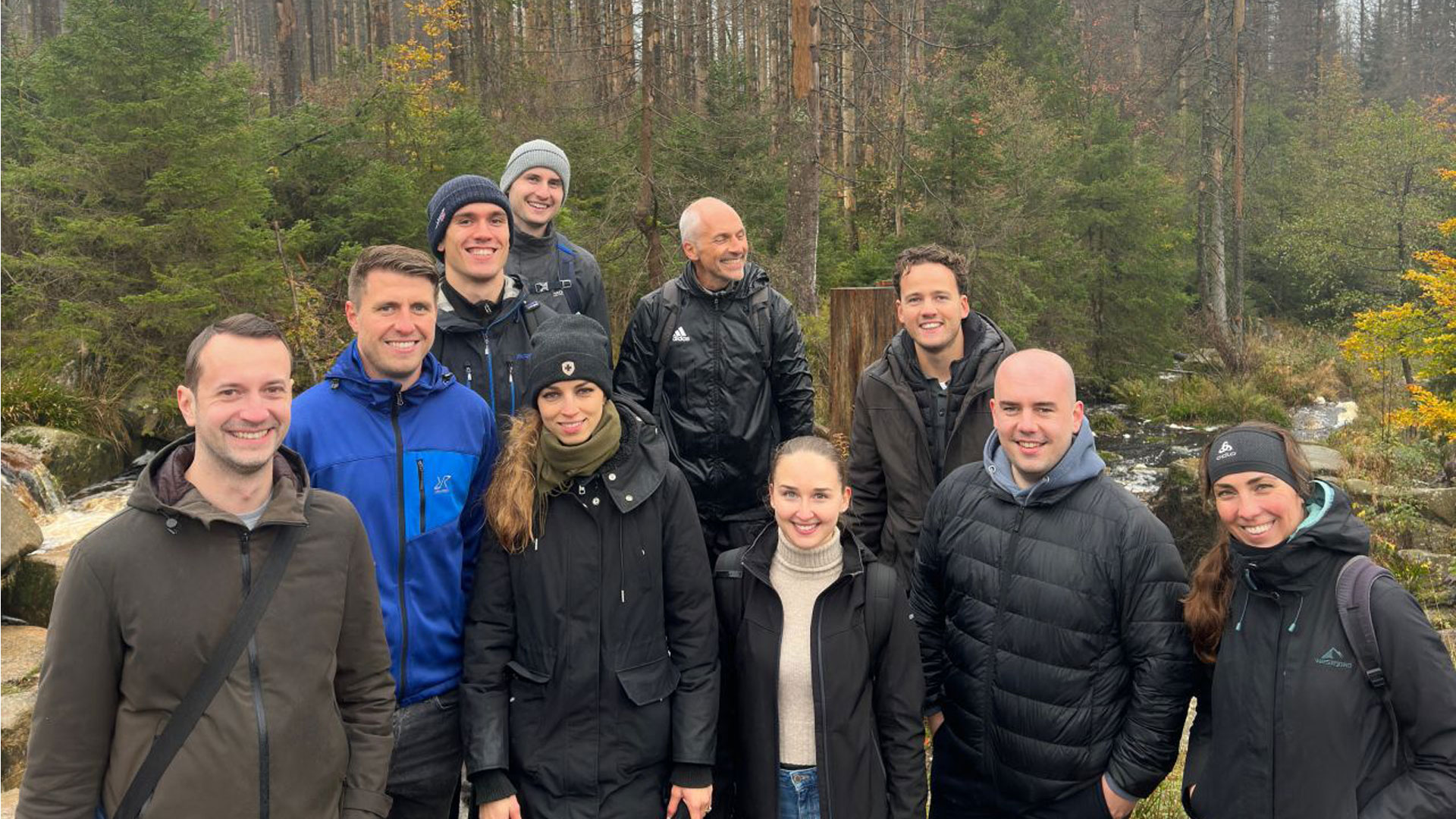
Our automotive team embarked on a transformative offsite workshop in the heart of the Harz forest
15 Nov - 2023
Our offsite was a powerful commitment to living out our purpose and values as a...
- 2023

Exciting Autumn Event Season at Panoff Consulting!
21 Oct - 2023
Exciting Autumn Event Season at Panoff Consulting!
- 2023
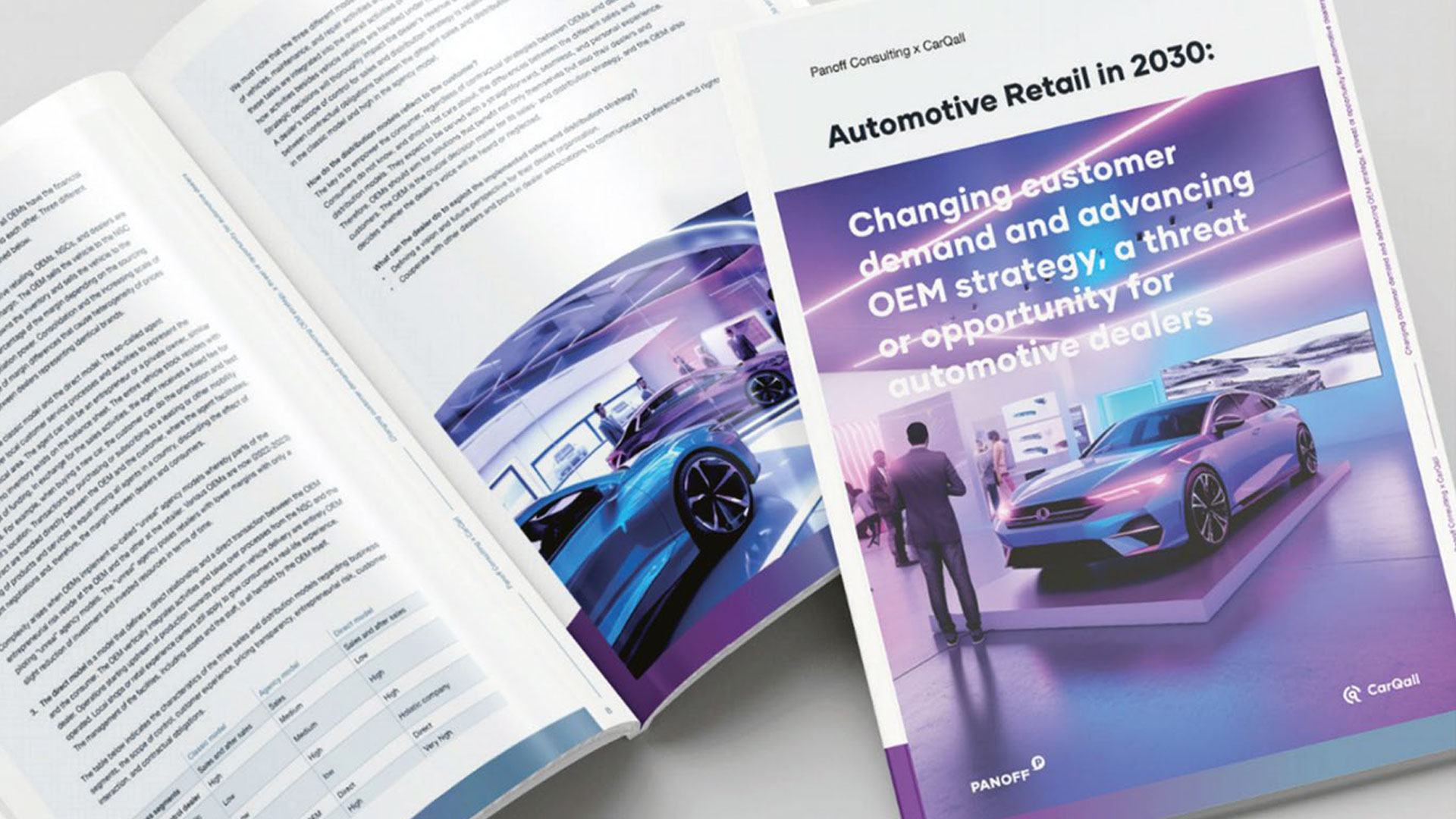
Digital strategy in the car dealership
02 Oct - 2023
A recent industry study shows: Sustainable success in automotive retail depends on a clear and...
- 2023
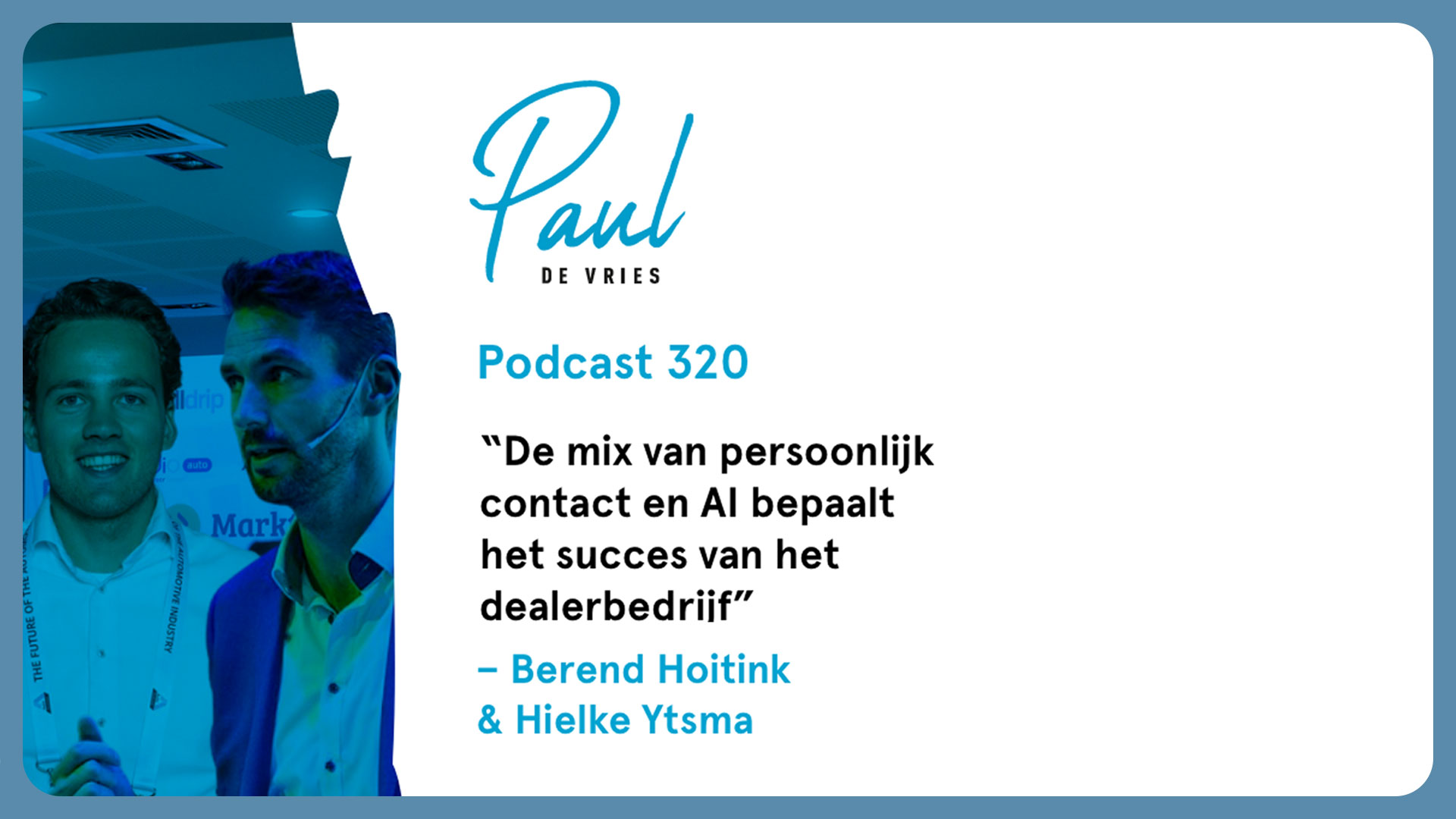
Berend Hoitink from Panoff Consulting and Hielke Ytsma from CarQal
02 Oct - 2023
Berend Hoitink and Hielke Ytsma share insights into the digital transformation of the automotive industry....
- 2023
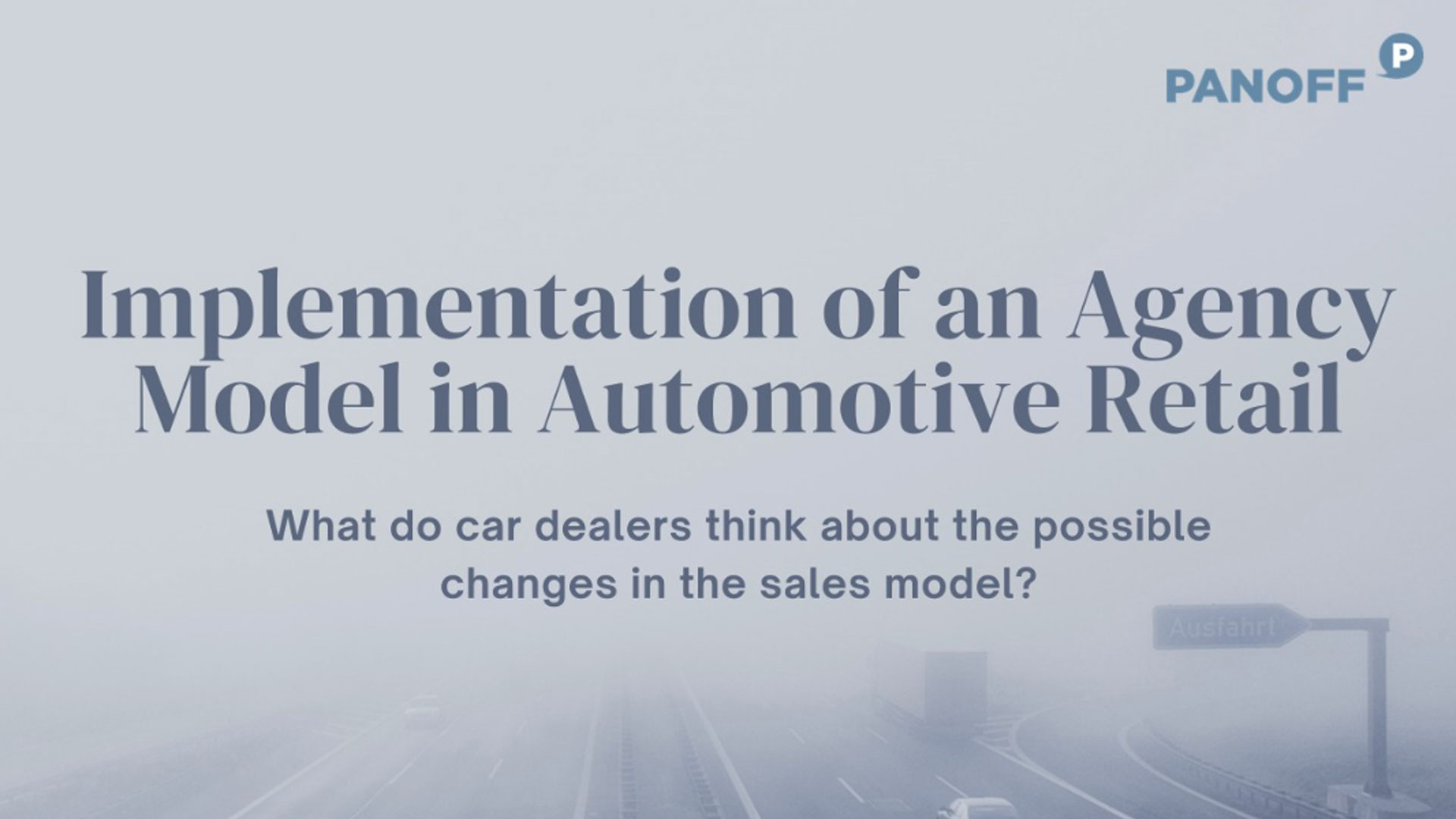
Is the Agency Model the Future of Automotive Retail?
20 Aug - 2023
Panoff Consulting explored the agency model's impact on the automotive industry by gathering insights from...
- 2023

The Swiss consulting firm Panoff Consulting opens a Dutch branch office
02 Aug - 2023
The Swiss consulting firm Panoff Consulting enters the Dutch market. This was announced by the...
- 2023
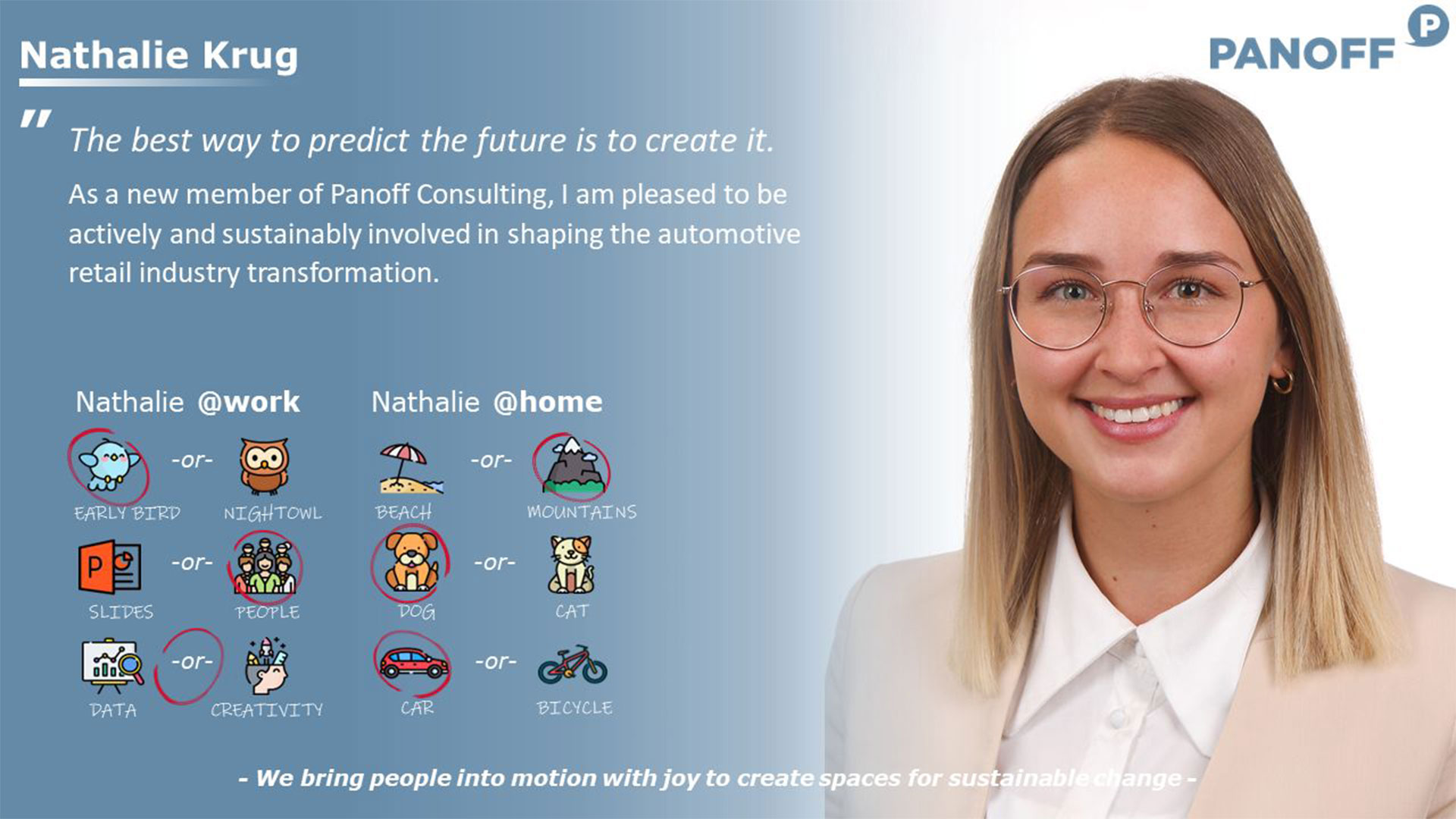
Welcome to our team Nathalie Krug!
10 Jul - 2023
Nathalie joined Panoff Consulting GmbH last week and we are happy to enlarge our automotive...
- 2023
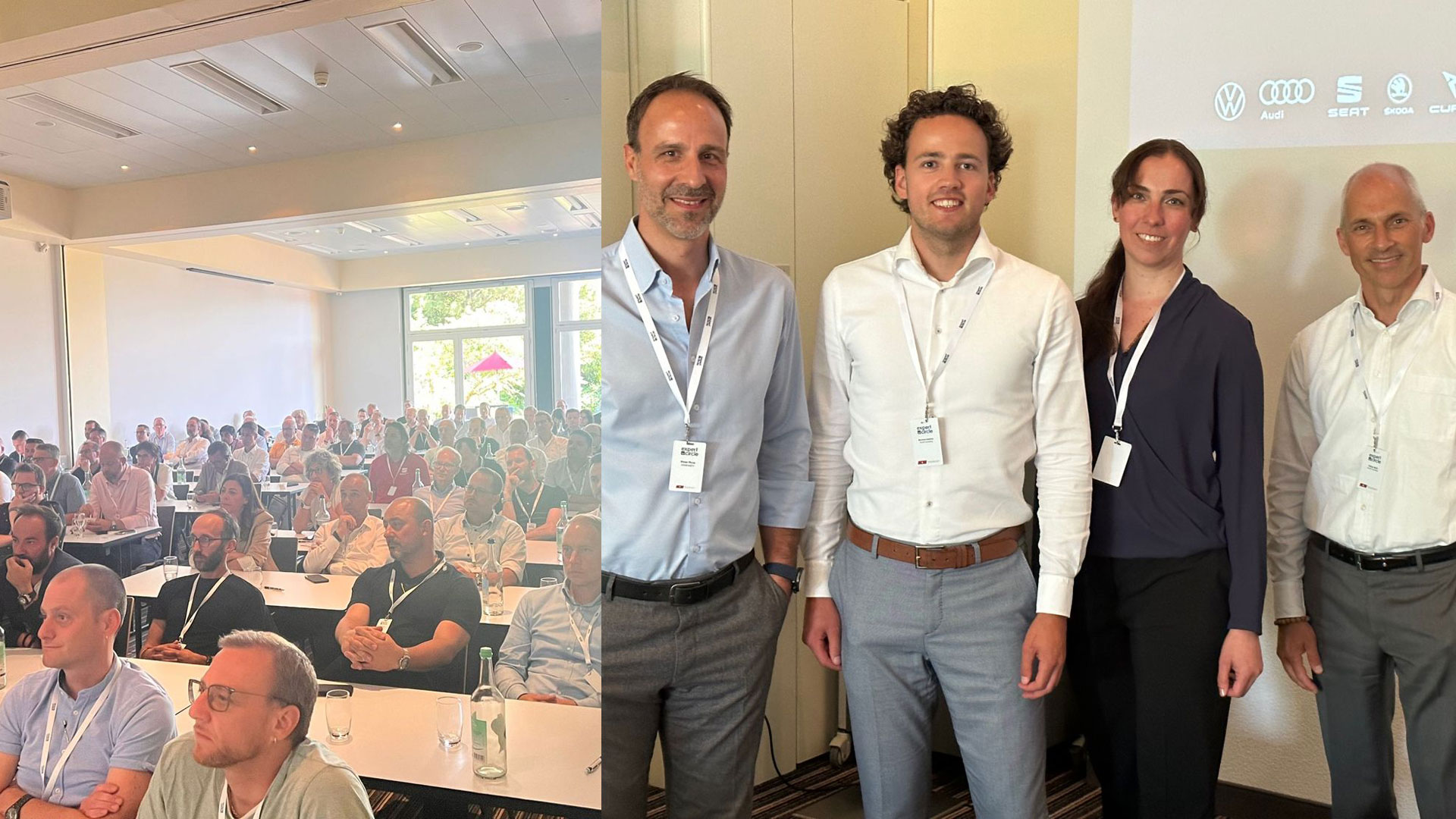
What is the future of my dealership?
20 Jun - 2023
OEMs are developing new agency sales structures and processes that massively impact dealers' operations and...
- 2023
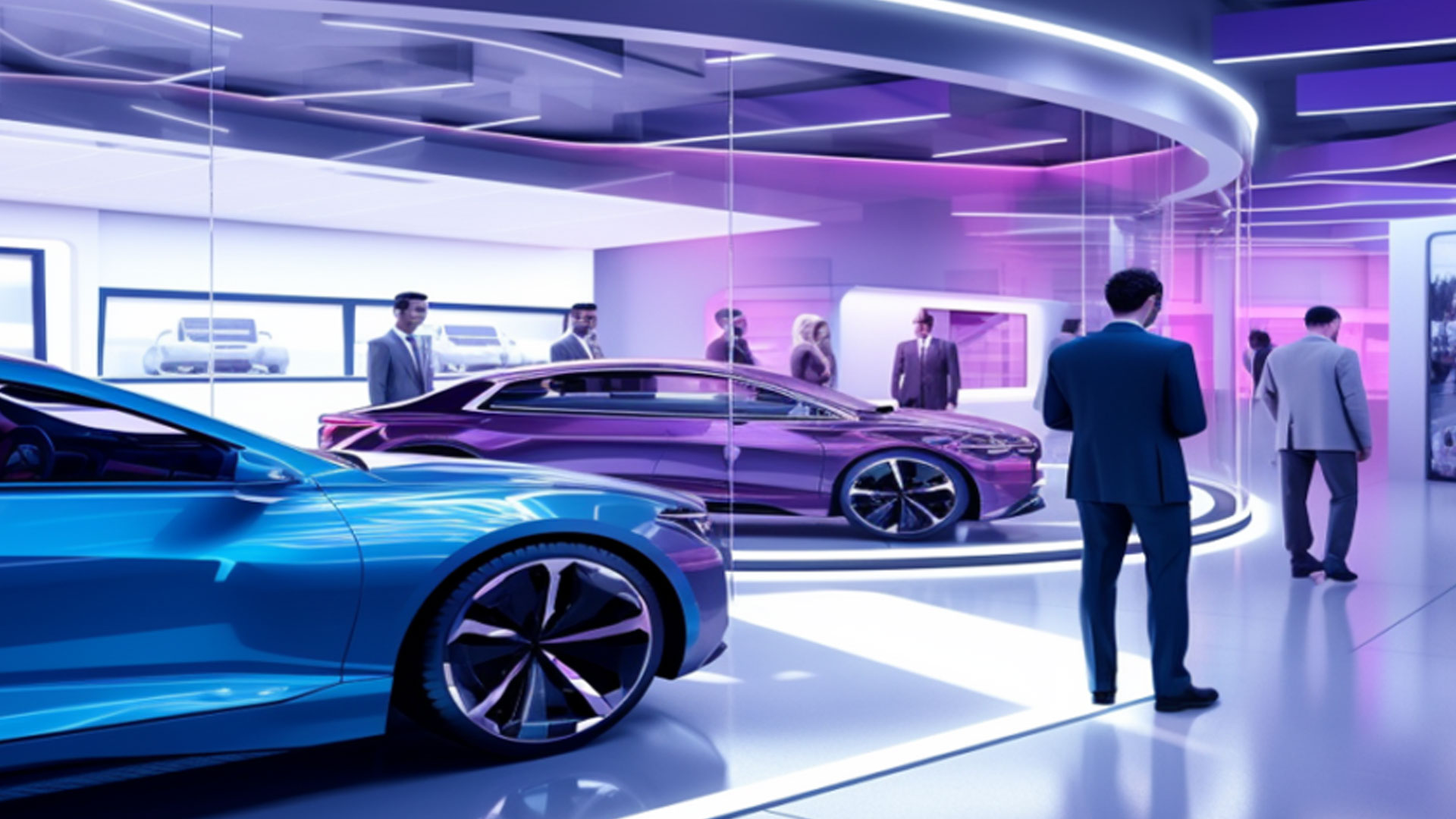
We are excited to announce our collaboration with CarQall – AI Voice Assistant
20 Jun - 2023
Are you a CIO or managing digital transformation in automotive retail? "Automotive Retail in 2030"...
- 2023
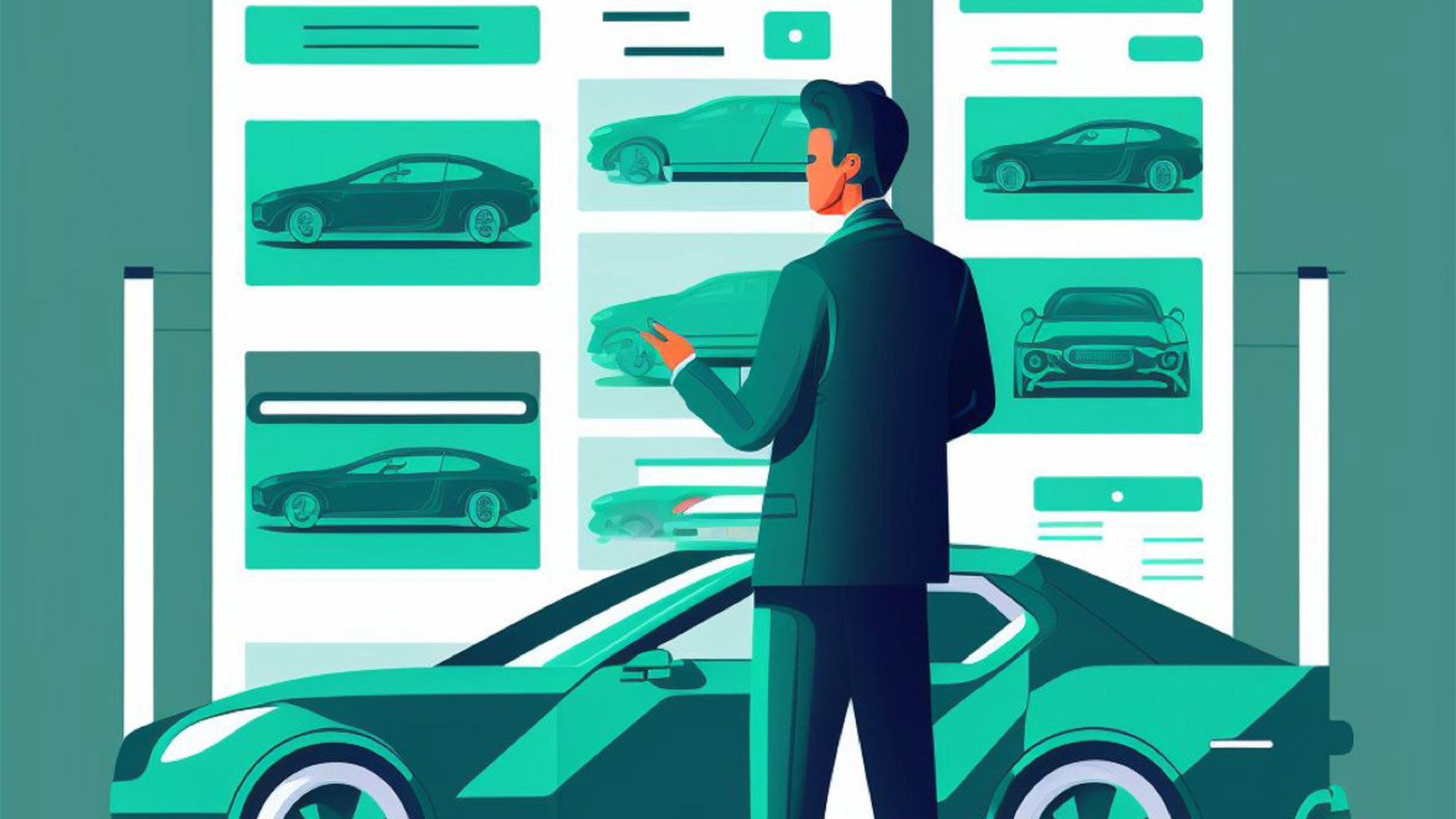
How to make use of AI in automotive retail?
20 May - 2023
Artificial intelligence (AI) is no longer a dream of the future; it is already a...
- 2023
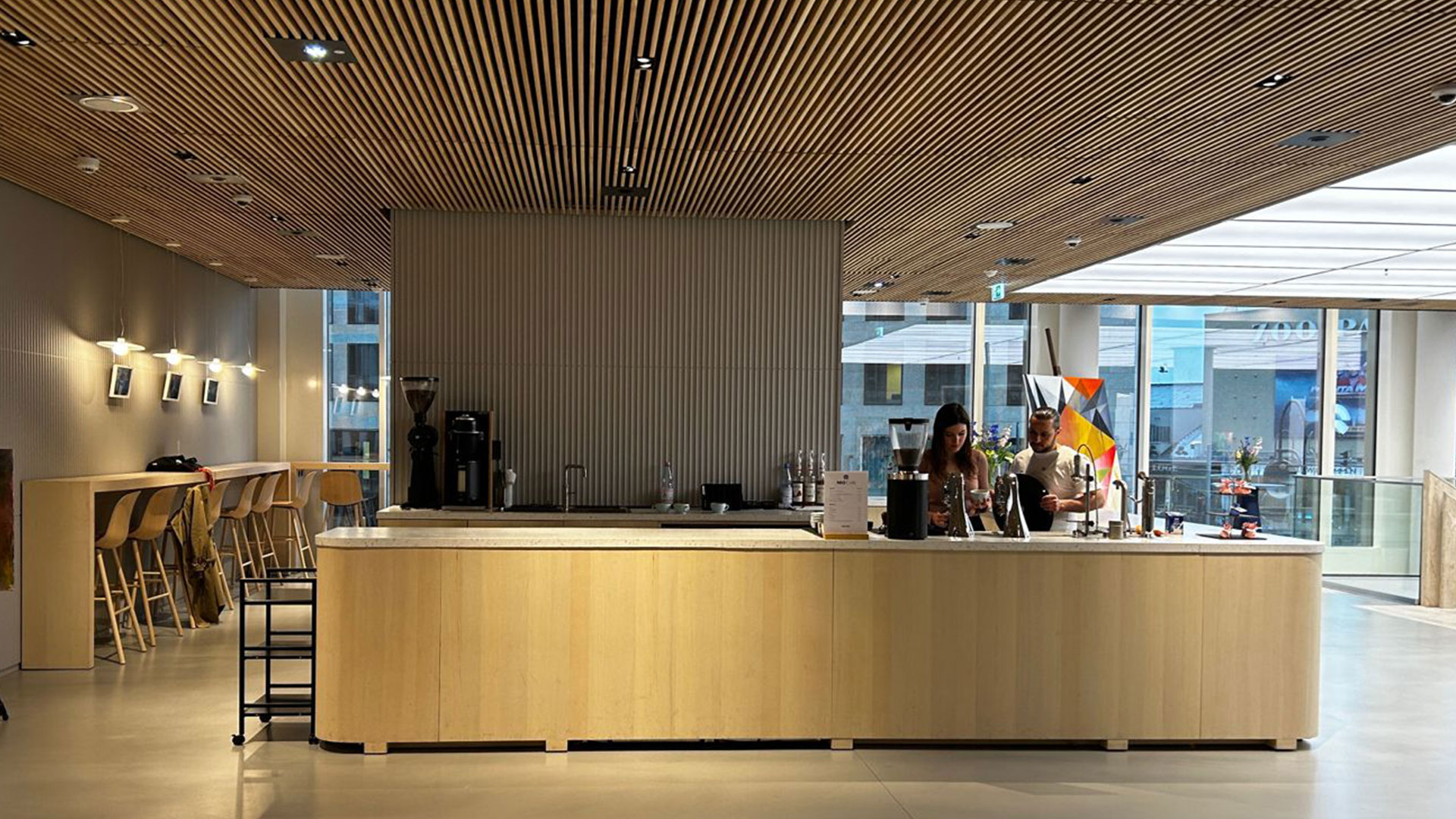
Chinese car manufacturers are actively entering the European car market CN
21 Apr - 2023
Formerly their product quality was critical, nowadays it is at least equal to European manufacturers....
- 2023
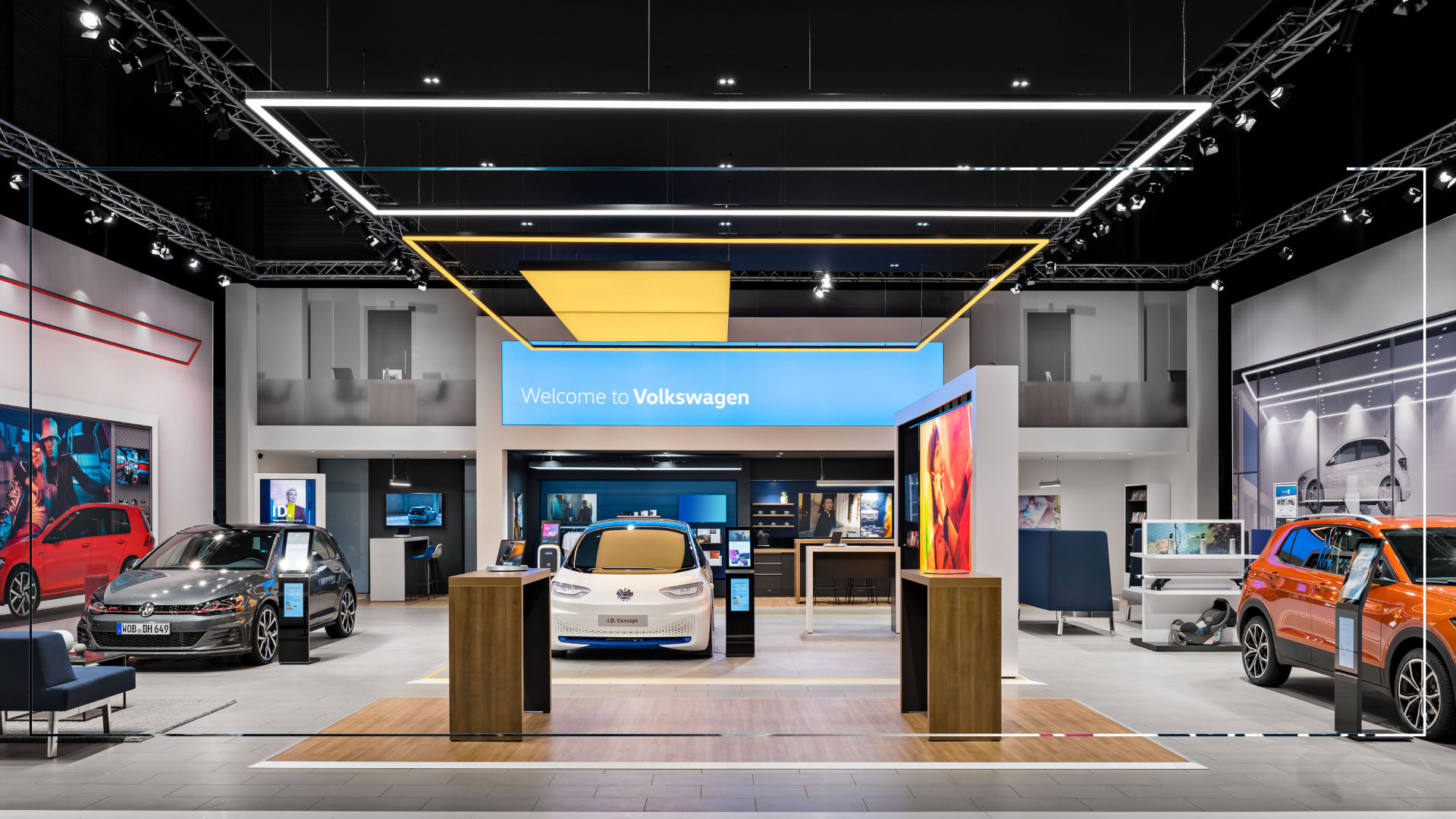
Case – Web2Retail
20 Apr - 2023
The customer experience is no longer a 12-step sales process. We are moving, and manufacturers...
- 2023
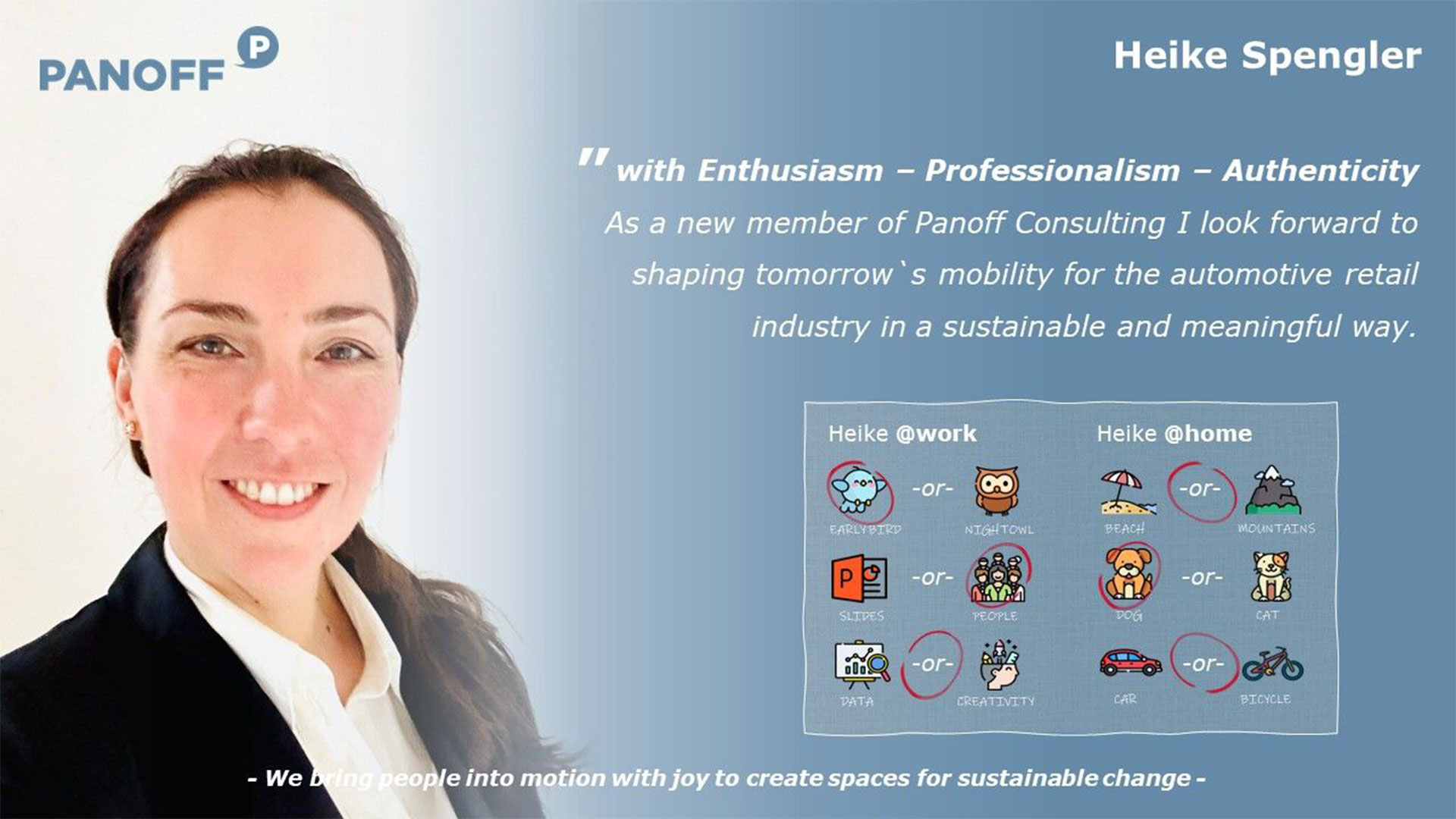
Welcome Heike!
10 Apr - 2023
Heike Spengler joins our automotive team to increase our presence in the Swiss & German...
- 2023
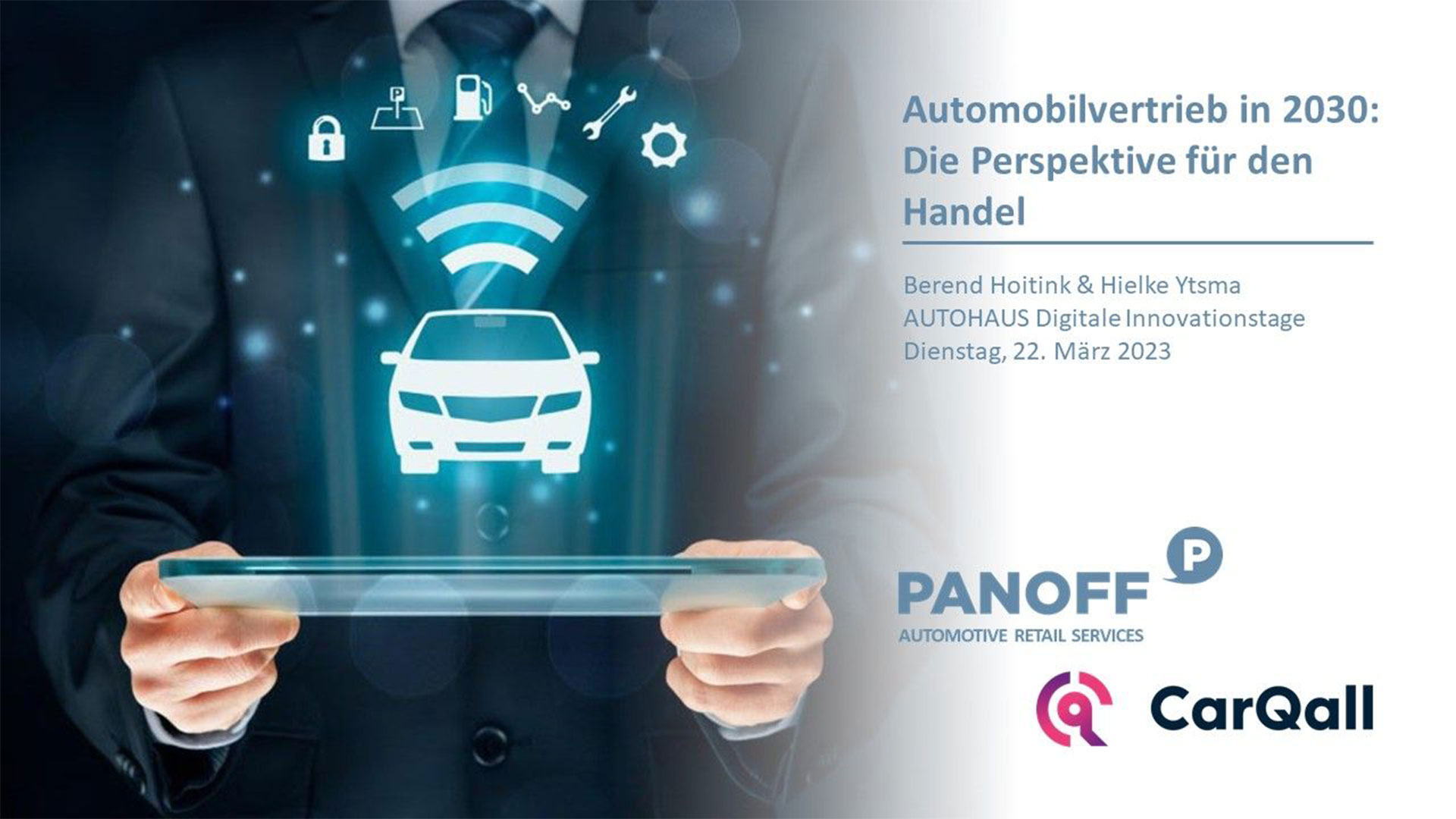
Automotive retail in 2030: The perspective for retailers
21 Mar - 2023
The environment of the automotive retailer is changing due to changing customer demand, new market...
- 2023
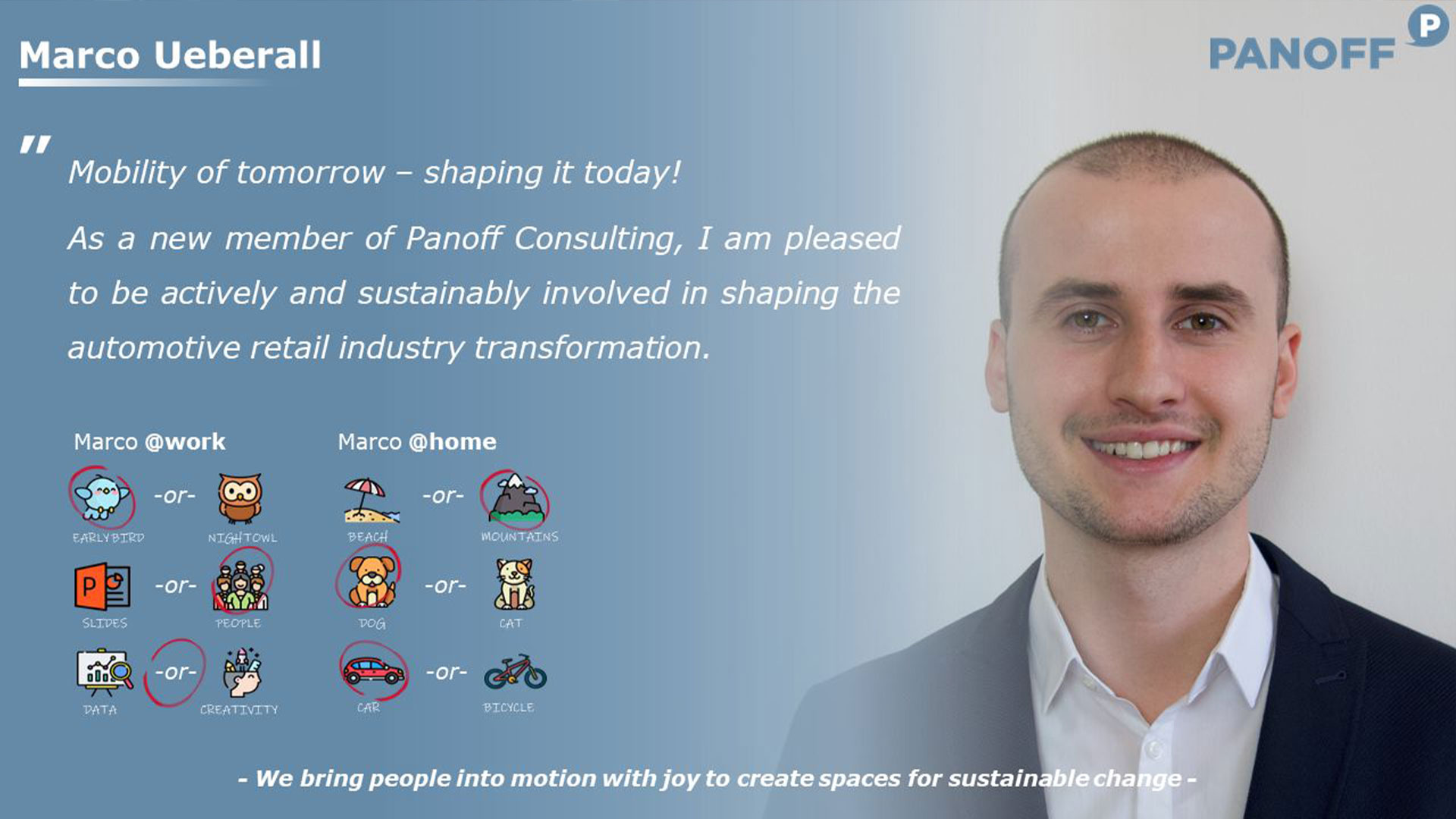
Welcome Marco!
21 Feb - 2023
Marco recently graduated in Automotive and Mobility Business at Nürtingen-Geislingen University (HfWU) and joined Panoff...
- 2023

What is the impact of mobility on the environment?
21 Jan - 2023
Personal mobility is one of the greatest goods of humanity, but it also comes with...
- 2022

Strengthening brand loyalty through an excellent customer journey
15 Oct - 2022
Current world events have been causing supply problems in various sectors for a number of...
- 2022
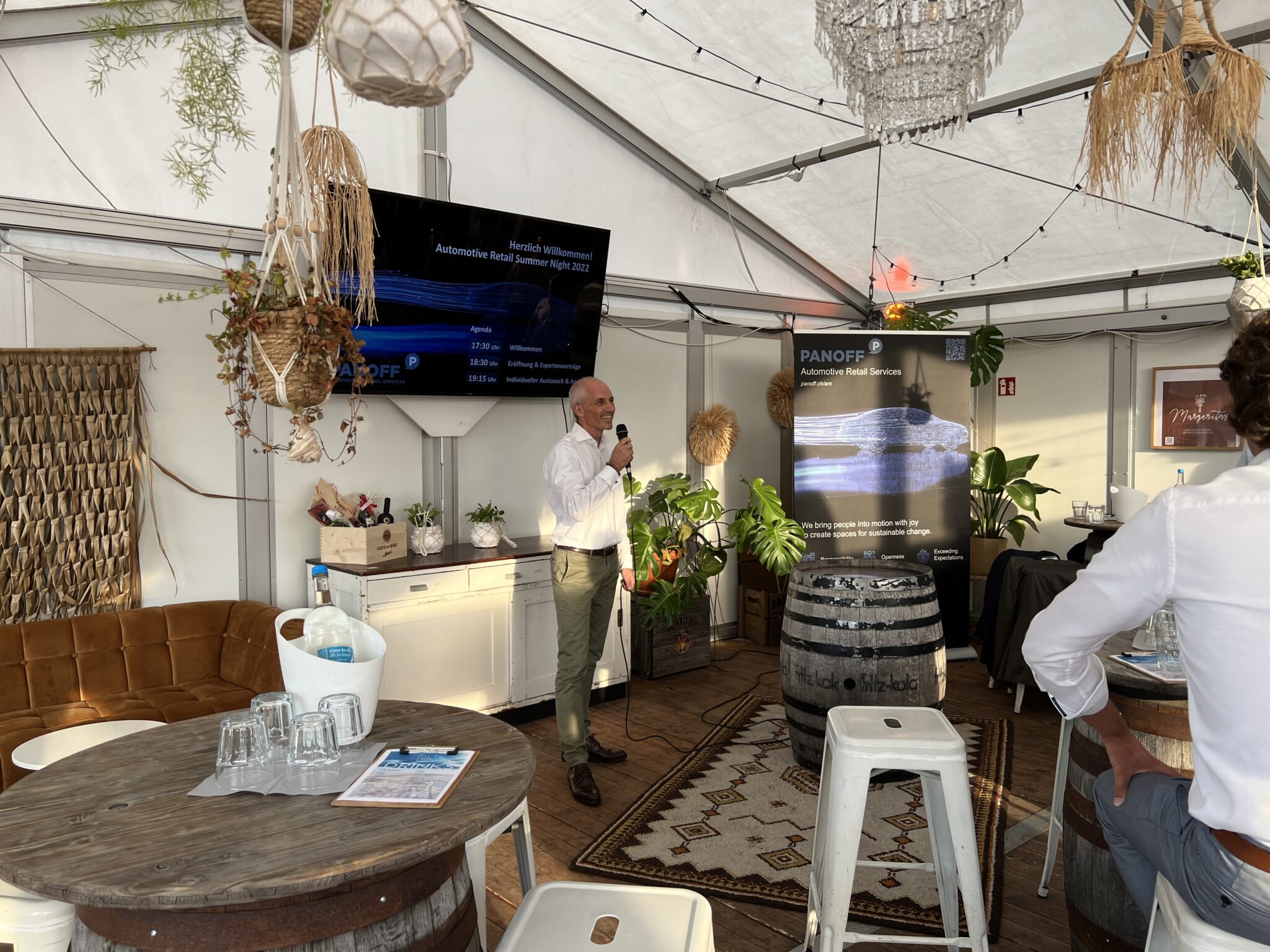
Customer event: ARS Summer Nights
05 Sep - 2022
Last Monday, the first edition of our Automotive Retail Summer Night took place on the...
- 2022
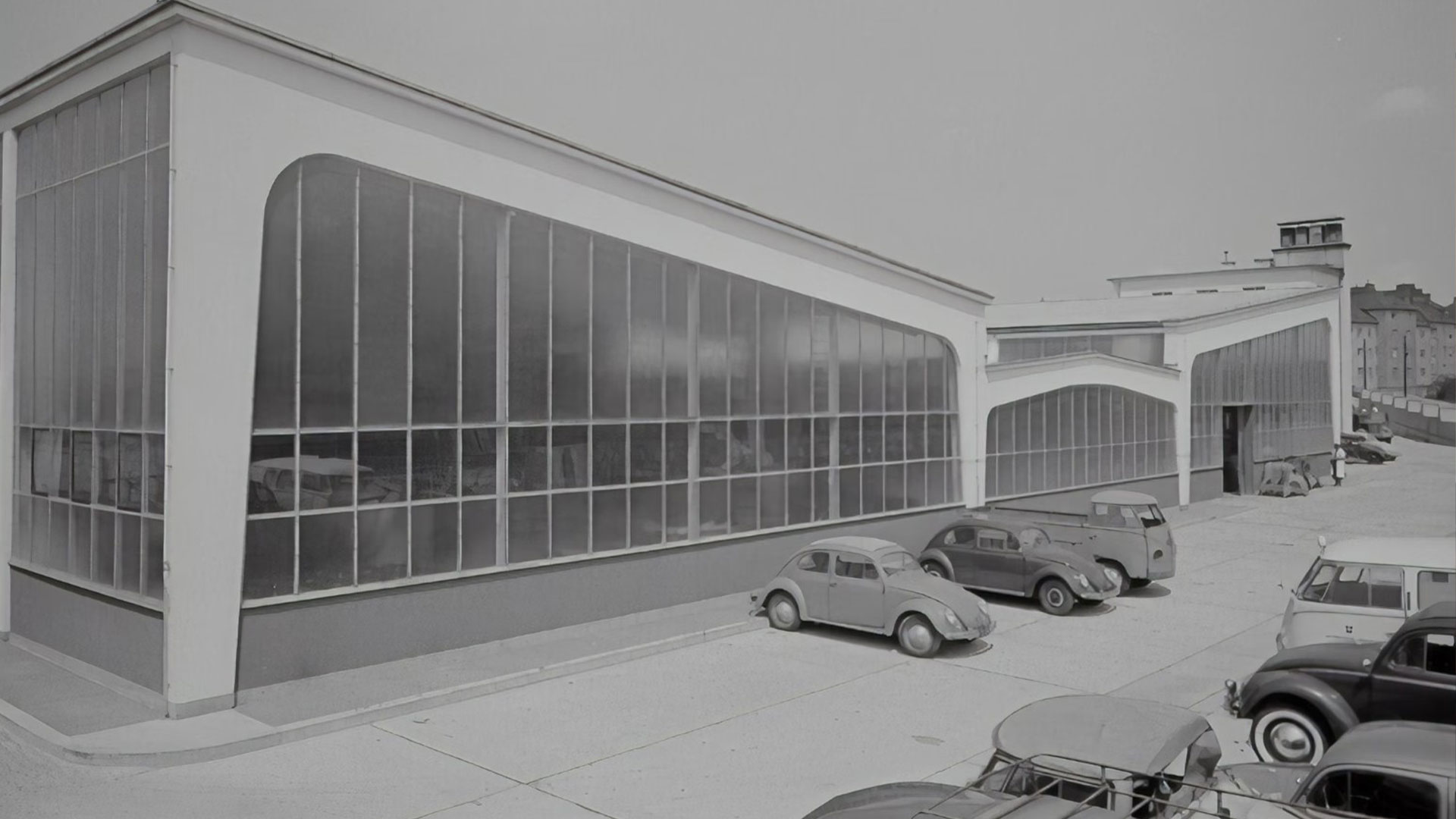
Car dealerships are not losing importance
29 Jul - 2022
Panoff Consulting recently presented its latest study "The Future of Customer Experience". We looked at...
- 2022
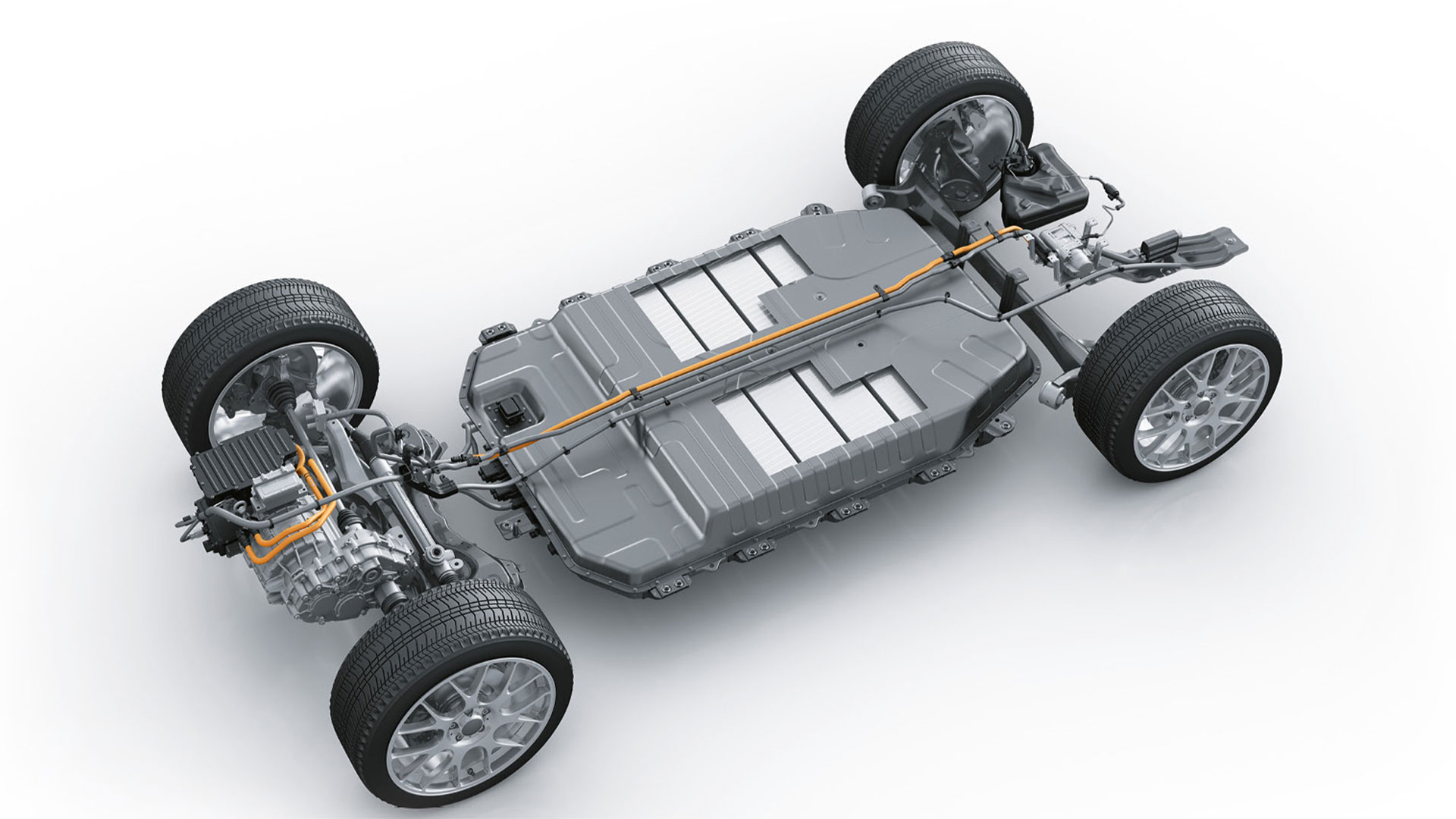
E-Volution – «Let’s take a look, then we’ll see»
05 Feb - 2022
Hardly any other industry has been overrun by so many changes at the same time...
- 2021
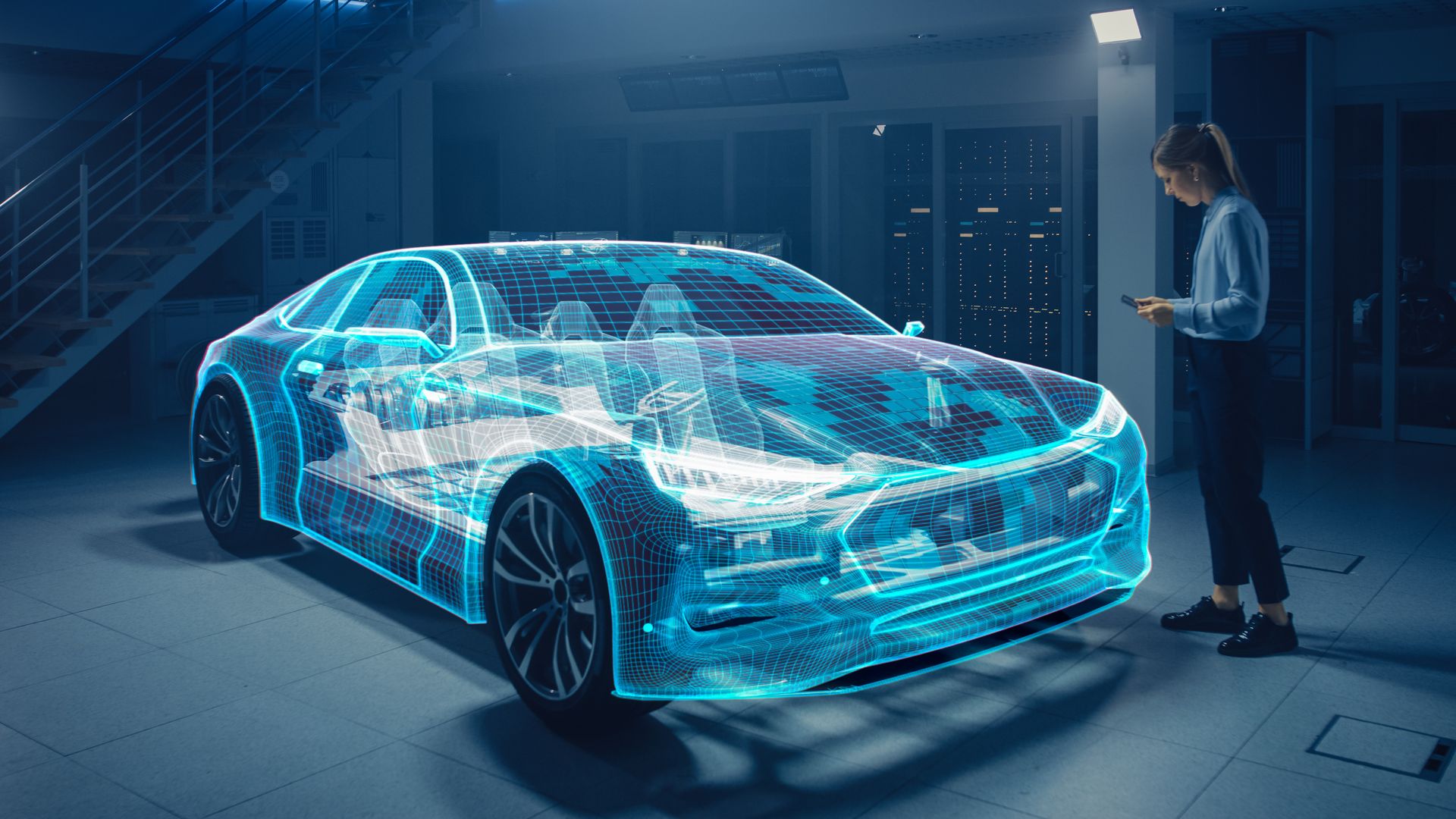
Study: Half of the digitization potential is still undiscovered
29 Nov - 2021
Whether you're a car enthusiast or someone who sees their car as a commodity, whether...
- 2021

(De-)centralization in the Automotive Retail
10 Jul - 2021
The (de)centralization of markets has always been an important topic in politics and business. In...
- 2021

Summer Report Panoff Consulting
05 May - 2021
Last week, we met up for our annual summer event. We used this opportunity to...
- 2021
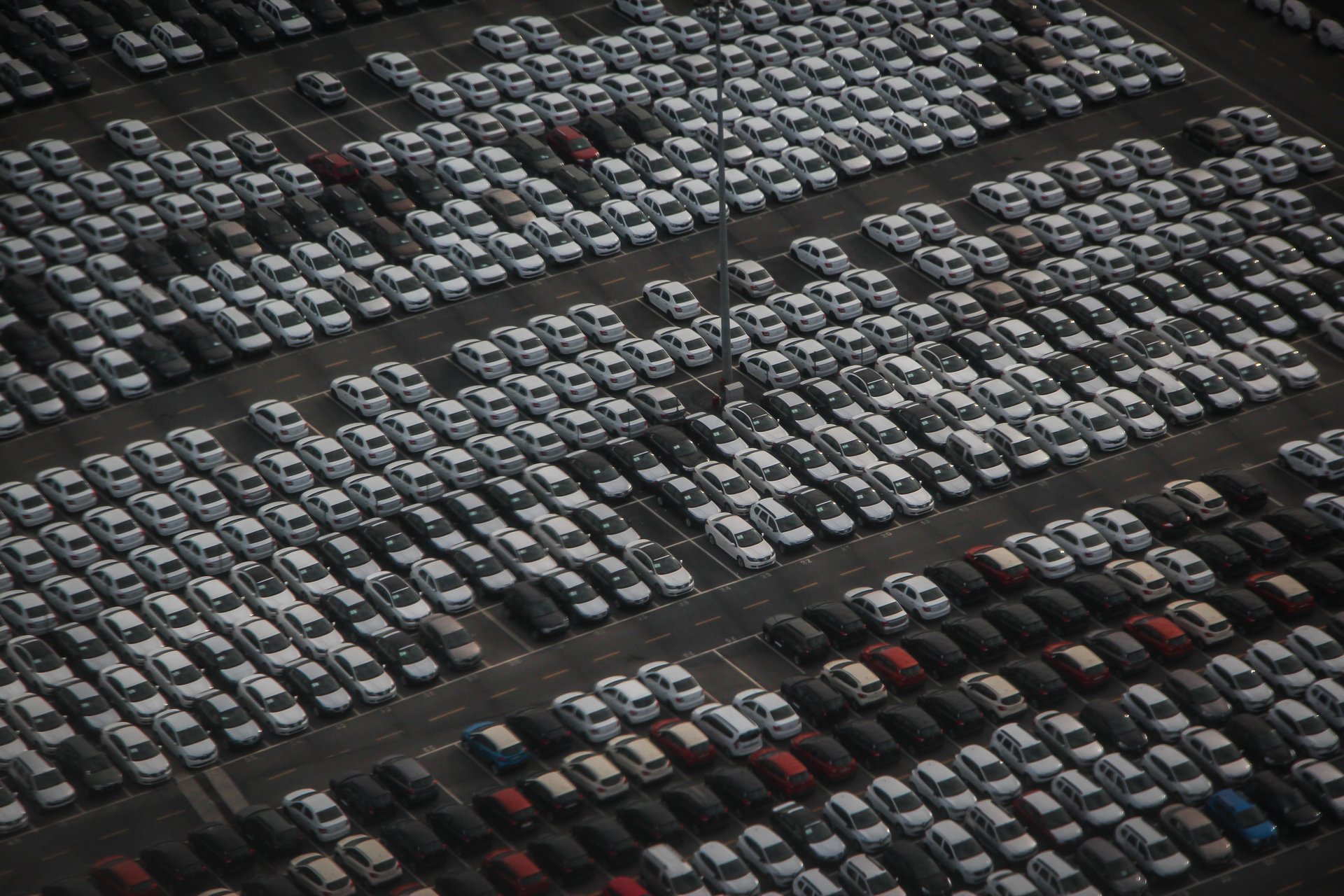
Dead end automotive retail – How sustainable is the automotive retail business?
21 Apr - 2021
In 2011, I sold my 5th generation car dealership: a painful process that was associated...
- 2021

MaaS in a practical test – Can car sharing prevail over traditional car ownership?
25 Mar - 2021
MaaS (Mobility-as-a-Service) has become increasingly popular in recent years. MaaS vehicles are clearly visible on...
- 2021

Technological turnaround and more efficient sales structures – established OEMs must be flexible
19 Feb - 2021
Since the mid-2000s, Chinese OEMs have repeatedly made efforts to gain a foothold in the...
- 2021

The new mobility: sharing and subscriptions instead of purchasing and ownership
20 Jan - 2021
To illustrate the complexity graphically, we have taken five exemplary mobility solutions and plotted them...
